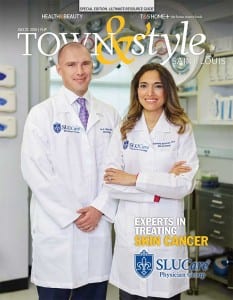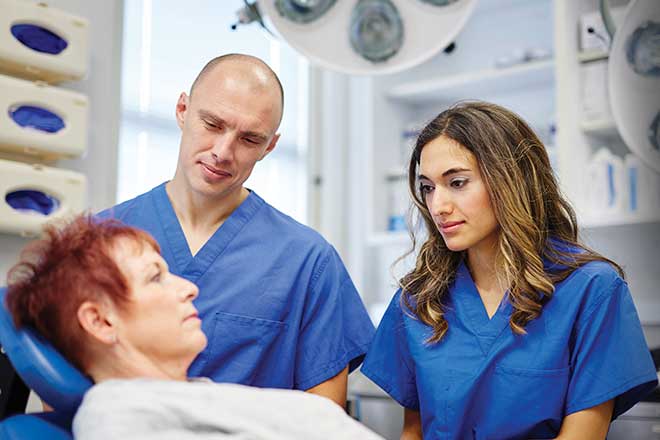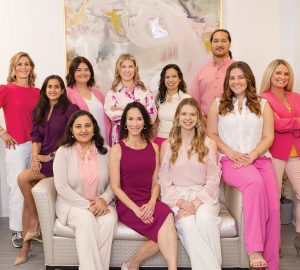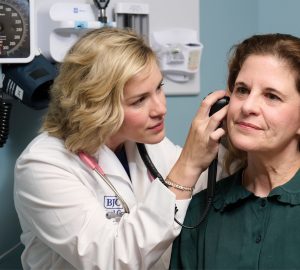When it comes to your health, the conventional route isn’t always the best one. That’s what David Spencer discovered when he had to have three sizable skin cancers on his nose removed via Mohs surgery. The outpatient procedure offers a 99 percent cure rate for nonmelanoma cancers, according to the American College of Mohs Surgery, but the resultant wounds, especially when the cancer covers a larger area, can involve unsightly repairs. That’s something Spencer, who had plans to go on a cruise a few months later, couldn’t have.
 So his SLUCare Physician Group doctors thought outside the box. The solution: two newer, less traditional repair techniques, explains Dr. Ian Maher, a Mohs and dermatologic surgeon. The result was a home run. “I thought I’d have scars, but I just have a faint line, and if you didn’t know I had surgery, you wouldn’t even notice it,” Spencer says. The procedure was so noteworthy, it is being published later this year in Dermatologic Surgery.
So his SLUCare Physician Group doctors thought outside the box. The solution: two newer, less traditional repair techniques, explains Dr. Ian Maher, a Mohs and dermatologic surgeon. The result was a home run. “I thought I’d have scars, but I just have a faint line, and if you didn’t know I had surgery, you wouldn’t even notice it,” Spencer says. The procedure was so noteworthy, it is being published later this year in Dermatologic Surgery.
Creative problem-solving is typical of the SLUCare Mohs team, Maher says. “We’re always driving ourselves to expand our skill set so we can deliver increasingly better results,” he notes, adding that his team offers skin cancer patients a one-stop solution. “We provide a high level of outpatient reconstruction, which means even patients with very complex skin cancers and wounds are able to avoid the added expense and inconvenience of seeing multiple providers.” He adds that additional specialists who may be required for very complex cases are available through SLUCare.
Recently new to SLUCare is Dr. Ramona Behshad, assistant professor of dermatology at Saint Louis University. Behshad says the collaborative nature of her SLUCare team results in seamless patient care. “If a patient needs complex reconstruction, such as when the cancer is close to the facial glands and requires an ENT specialist, I don’t have to figure out another physician to transition their care to,” she says. “Here, we all have access to the same medical records and we’re all constantly checking in with each other, so it’s easy.”
Behshad says she loves the patient-centric approach at SLUCare. “I can feel it in the way patients are taken care of, from the admins who help them schedule appointments to the nurses who constantly check in and make sure they’re OK,” she notes. Sister Patricia Talone, a patient who had Mohs surgery on her nose, agrees. Although she jokes that at her age, she doesn’t much care about appearance, she was concerned that an unsightly scar would detract from the professional talks she gives regularly. But Maher calmed her fears, making the experience as stress-free as possible. “He clearly explained everything to me ahead of time, and during the procedure he did everything he could to keep my anxiety level down,” says Talone, who was able to return to work in a matter of days. “Overall, the experience was excellent. Friends say they can’t even tell I had surgery.”
Dr. Ian Maher and Dr. Ramona Behshad, SLUCare Mohs surgeons, provide individualized, multidisciplinary care to skin cancer patients. They practice at 2315 Dougherty Ferry Road, Ste. 200A and 1755 S. Grand Blvd. For more information, call 314.256.3420 or visit slucare.edu/mohs.
Cover design by Julie Streiler
Photos courtesy of SLUCare Physician Group








